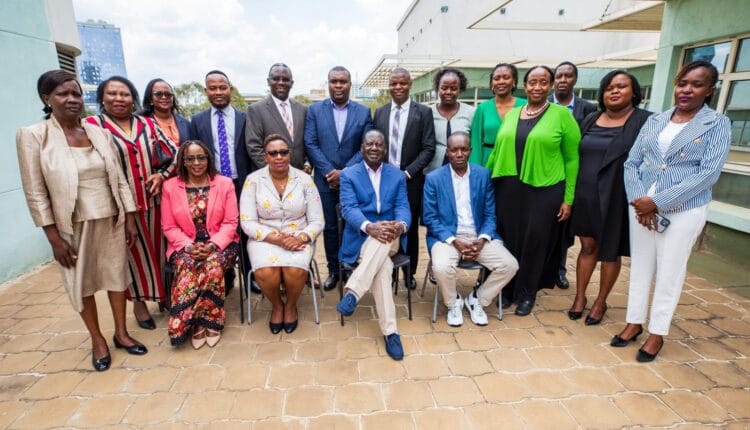By Antynet Ford
Gender Cabinet Secretary Aisha Jumwa held a meeting with Azimio la Umoja leader Raila Odinga over the elusive two-third gender rule.
Jumwa who was in the accompaniment of the Multi-sectoral Working Group (MSWG) said she briefed the former Prime Minister on the progress of the two-thirds gender principle.
The CS said they made a visit to consult with Odinga because of his contribution and trust that they have in him hence the two-thirds gender principle cannot be complete without the insights of Raila and hence had to meet him at his office.
“I met the Azimio la Umoja leader Raila Odinga to brief him on how far we have gone with the two-thirds gender principle. Being one of the leaders we trust in this country and his contribution to this journey we are happy that he has given us the opportunity.” Jumwa stated.
She noted that the meeting came at a very critical moment because the input of the ODM leader in this discourse is key.
Cs Jumwa stated that President William Ruto in December 2022 submitted a Memorandum to Parliament requesting it to consider a constitutional amendment to enact the not more than two-thirds gender principle.
“It is against this background and in the spirit of fully implementing the Constitution of Kenya (2010) on the two-thirds gender principle that the Multi-Sectoral Working Group – MSWG comprising of state and non-state actors was established.” She remarked.
Jumwa stated that MSWG engaged the National Dialogue Committee (NADCO) and submitted preliminary proposals for their consideration since the not more than two-thirds gender principle was one of the issues to be addressed.
“The MSWG has since fulfilled its mandate and developed a framework for the implementation of the not more than two-thirds gender principle. The MSWG has prepared a report detailing the considerations made in arriving at the proposed framework.” Jumwa said.
Raila said there was consensus that enhanced collaborative efforts are essential for fully realising the implementation that the principle is intended.


